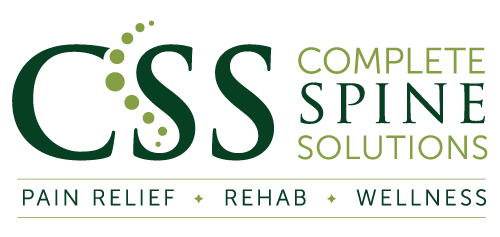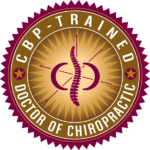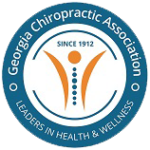
Losing weight is a challenge that many face, particularly in a world where convenience and high-calorie foods often take center stage. While we all know that the foundation of weight loss lies in eating better and staying active, the reality is that shedding those extra pounds isn’t always straightforward—especially as we get older. This is where understanding the best supplements for weight loss can play a helpful role in supporting your journey.
Though the allure of over-the-counter weight loss supplements is strong, it’s important to approach them with a healthy dose of skepticism. Many of these products lack solid scientific backing and can even be unsafe, as noted in a recent review published in the AMA Journal of Ethics. The truth is, no pill or powder can replace the tried-and-true methods of a balanced diet and regular exercise.
That said, there are certain vitamins and nutrients that might offer a helping hand in your weight loss journey when combined with healthy lifestyle choices. These supplements aren’t a quick fix, but they can be valuable aides when used wisely. Here’s what to consider as you explore your options.
Magnesium
First up on our list of best supplements for weight loss is magnesium. Magnesium is a vital mineral that plays a huge role in various bodily functions, from energy production to maintaining healthy muscle and nerve function. Despite its importance, many people, especially those dealing with conditions like obesity, diabetes, or metabolic syndrome, don’t get enough magnesium in their diets.
Magnesium deficiency is more common than you might think and has been linked to chronic inflammation and difficulties in managing weight. For those who are deficient, supplementing with magnesium can have notable benefits. Research shows that while magnesium supplementation doesn’t universally lead to weight loss, it can make a difference for individuals with certain health issues like diabetes, high blood pressure, or obesity.
If you suspect a magnesium deficiency, it’s best to consult your healthcare provider for testing. Remember that moderation is key. The National Institutes of Health recommends that adults limit magnesium supplements to no more than 350 mg (about the weight of ten grains of rice) per day. Exceeding this amount can lead to unpleasant side effects, including digestive issues like diarrhea or more serious risks at extremely high doses.
You can also introduce magnesium-rich foods into your diet, such as leafy greens, nuts, seeds, and whole grains, which is a fantastic way to support overall health.
Multivitamins
For most people, multivitamins can serve as a helpful foundation for maintaining essential nutrient levels. These vitamins help your body convert the food you eat into energy, ensuring that you stay energized and active throughout the day. Additionally, iron plays a crucial role in transporting oxygen to your cells, which is important for both overall health and the effective functioning of your metabolic processes. Iron is particularly important for those looking to build lean muscle mass, as it supports muscle oxygenation and endurance.
When choosing a multivitamin, look for products that include iron, especially if you’re prone to deficiencies or follow a diet that may lack sufficient iron-rich foods. It’s also worth noting that not all multivitamins are created equal. Some may contain added beneficial ingredients like vitamin D, calcium, and antioxidants, which can support bone health, immune function, and overall well-being.
Depending on your individual needs, you might also consider a multivitamin that includes omega-3 fatty acids, which are known for their heart health benefits, or one with added probiotics to support gut health.
Protein Powder
Protein powder is a popular supplement among those looking to lose weight, and it can be a highly effective tool when used correctly and using a high-quality product. By supporting muscle growth and helping to control hunger, protein powder can enhance your weight loss efforts. Here are key points on how protein powder can aid in your weight loss journey:
- Builds Lean Muscle Mass: Protein supports muscle growth, which increases your resting metabolic rate, helping you burn more calories even at rest.
- Promotes Satiety: Protein powder helps you feel full longer, reducing cravings and overall calorie intake, which is crucial for weight loss.
- Supports High-Protein Diets: Studies show high-protein diets can lead to greater weight and fat loss compared to lower-protein diets.
- Convenient Supplement: Protein powder is easy to incorporate into your routine—add it to smoothies, oatmeal, or baked goods.
For those who struggle to get enough protein from whole foods alone, protein powder can be a convenient and effective solution. It’s easy to incorporate into your daily routine by adding it to smoothies, oatmeal, or even baked goods. Whey protein is quickly absorbed by the body and contains all the essential amino acids your body needs, making it a popular choice. However, plant-based protein powders like pea, hemp, and soy are also good options, especially for those with dietary restrictions.
However, it’s important to remember that protein powder should complement, not replace, a balanced diet rich in whole foods. You should also be mindful of the protein powder’s ingredients, as some products have added sugars, artificial flavors, or unnecessary fillers that can hinder your weight loss efforts. Always opt for high-quality, minimally processed protein powders.
Fiber
Fiber is important for a healthy diet, and its benefits for weight loss are well-documented. Unlike other nutrients, fiber isn’t digested by the body, which means it passes through the digestive system largely intact. Including sufficient fiber in your diet can make it easier to stick to a calorie-controlled eating plan, ultimately aiding in weight loss. Here’s how fiber can help with weight loss:
- Increases Satiety: High-fiber foods take longer to chew and digest, which can lead to increased feelings of fullness and reduced calorie intake.
- Regulates Blood Sugar Levels: Fiber slows the absorption of sugar into the bloodstream, preventing spikes and crashes that can lead to overeating.
- Supports Digestive Health: Fiber adds bulk to the stool and promotes regular bowel movements, helping to prevent constipation and support a healthy digestive tract.
- Reduces Caloric Density: Foods high in fiber tend to be lower in calories but more filling, allowing you to eat larger portions without consuming too many calories.
B Vitamins
B vitamins are a group of several water-soluble vitamins, helping with various bodily functions, particularly with energy production and metabolism. These vitamins help convert the food we eat into usable energy, which helps maintain a healthy weight and supports overall wellness.
- Vitamin B3 (Niacin) helps the body break down carbohydrates and fats, converting them into energy. Niacin is also involved in maintaining healthy skin, nerves, and digestion. Niacin can indirectly support weight management, especially when paired with a balanced diet and regular physical activity.
- Vitamin B12 is another key player, particularly noted for its role in red blood cell formation, nerve function, and DNA synthesis. Some research suggests that low levels of vitamin B12 might be linked to weight gain and obesity. This could be due to B12’s influence on energy levels and metabolism. When B12 levels are adequate, the body is better equipped to produce energy and support physical activity, which can contribute to maintaining a healthy weight. However, findings are mixed, and more research is needed to fully understand this relationship.
- Vitamin B6 (Pyridoxine) helps in the production of neurotransmitters such as serotonin and dopamine, which regulate mood and appetite. By supporting these functions, B6 may help in managing stress and cravings, which are often linked to weight gain.
Omega-3 Fatty Acids
Omega-3 fatty acids are a type of polyunsaturated fat that supports overall health. These essential fats are not produced by the body and must be obtained through diet or supplements.
Here’s how Omega-3 fatty acids can support your weight loss goals:
- Reduces Inflammation: Chronic inflammation can contribute to weight gain and make it harder to lose weight. Omega-3s help reduce inflammation, creating a healthier environment for weight loss.
- Regulates Appetite: Omega-3s can influence the hormones that control hunger, helping you feel fuller longer and reducing the likelihood of overeating.
- Boosts Metabolism: Some studies suggest that Omega-3s can increase the metabolic rate, helping your body burn more calories throughout the day.
- Supports Fat Loss: Omega-3s have been shown to enhance fat burning, especially when combined with regular exercise.
Chromium
Chromium is a trace mineral that affects how your body handles metabolism, particularly when it comes to carbohydrates and fats. Some people turn to chromium supplements with the hope that it will improve insulin function and help with blood sugar management, especially for those with type 2 diabetes. In certain cases, chromium has shown promise in helping to regulate blood sugar in diabetic patients.
However, for those without diabetes, research suggests that the effects of chromium on blood sugar levels are limited. In fact, the evidence supporting chromium as a weight loss aid is quite mixed. A review of studies on obesity found that, even under the best circumstances, chromium’s impact on weight loss was minimal, with only a slight reduction in body weight reported.
Some users have reported mild side effects like stomach discomfort and bloating, but in rare cases, more severe issues such as kidney or liver damage and muscle problems have occurred after taking large doses. Before adding chromium to your regimen, it’s a good idea to discuss it with your healthcare provider to ensure it’s a safe option for you.
Effectiveness of Supplements for Weight Loss
Although there have been many studies exploring the effectiveness of weight loss supplements, the truth is that much of this research falls short in quality. A 2020 review in Nutrients highlights that many of these studies are limited in scope and reliability. The National Institutes of Health’s Office on Dietary Supplements echoes this concern, pointing out that the available research often relies on animal studies rather than rigorous human clinical trials.
The organization also cautions that more research is needed to fully understand both the safety and effectiveness of many weight loss supplement ingredients. Some of these ingredients may even interact with medications, posing other risks.
What really makes any successful weight loss journey successful is a commitment to building and maintaining a healthy lifestyle based on individual needs and goals.
Weight Loss Supplements and FDA Regulation
Weight loss supplements are not regulated by the FDA in the same way that prescription medications are. The FDA classifies dietary supplements, including those marketed for weight loss, as food products rather than drugs, which means that while the FDA has the authority to oversee supplement manufacturing practices and ensure that products are safe for consumption, it does not evaluate or approve the effectiveness of these supplements before they reach the market.
Manufacturers are the ones who are responsible for ensuring the safety of their products and the accuracy of the claims on their labels, but they are not required to provide proof of efficacy before selling them. If a supplement is found to be unsafe after it has been released, the FDA can take action, such as issuing warnings, demanding recalls, or banning the product.
However, because these supplements aren’t regulated before they hit the shelves, it’s important to be diligent and do your research before deciding to use them. Always check for credible sources of information and consider talking with your healthcare provider to ensure the supplement is safe and appropriate for you. Taking these steps can help you avoid potential health risks.
Why We Believe in Standard Process for the Best Supplements for Weight Loss
At Complete Spine Solutions, we understand the importance of providing our patients with high-quality, whole-food-based supplements. That’s why we’ve partnered with Standard Process, a company that shares our dedication to holistic health. For decades, Standard Process has been producing nutritional supplements sourced directly from organic, regenerative farms. This ensures that the supplements are as close to nature as possible, offering greater nutrient diversity and better absorption.
The supplements we recommend, and use ourselves, are not just about filling nutritional gaps but about supporting your body’s systems as a whole. Standard Process follows sustainable practices, not only caring for your health but also promoting the well-being of the environment. By using their supplements, you’re not just supporting your personal wellness journey—you’re also contributing to a more sustainable world.
When it comes to health, there’s no substitute for quality. Our experience and trust in Standard Process ensures you’re receiving supplements that align with our philosophy of whole-food nutrition—just as nature intended.
For any questions or guidance on incorporating Standard Process supplements into your lifestyle, feel free to reach out to us. We’re here to support you on your path to optimal health.
Frequently Asked Questions About Weight Loss Supplements
Are weight loss supplements safe to use?
While some supplements can be helpful, many over-the-counter products lack solid scientific backing and may pose risks. It’s important to research thoroughly and consult a healthcare provider before using any weight loss supplements.
Can weight loss supplements replace diet and exercise?
Supplements should not replace a balanced diet and regular exercise. They can complement a healthy lifestyle, but there’s no “magic pill” for weight loss. Prioritize whole foods and physical activity.
Do supplements help with metabolism?
Certain supplements, like B vitamins and omega-3 fatty acids, can support metabolic functions, helping your body convert food into energy. However, their effects are most noticeable when combined with proper diet and exercise.
Are weight loss supplements regulated by the FDA?
Dietary supplements are not regulated by the FDA the same way as medications. While manufacturers are responsible for ensuring product safety, it’s important to do your own research and consult a healthcare provider.
Are there side effects to taking weight loss supplements?
Some supplements can cause side effects, especially if taken in large doses. Common issues include digestive discomfort, but more severe reactions can occur with certain products. Always follow dosage recommendations.
If you’d like more tips or information on the best supplements for weight loss, check out our other articles on this site. If you continue to struggle with weight loss or have more specific questions, give us a call at Complete Spin Solutions (770) 938-4606 or schedule an appointment online if interested in our chiropractic services. Contact us today or stop by the office; we’re located at 2347 Brockett Rd Tucker, GA 30084, across from Fresenius Kidney Care Tucker and North Atlanta Primary Care Tucker, and northwest of the Tucker Town Square Center shopping mall.
About the Author

Dr. David Shapiro, DC, CEO of Complete Spine Solutions
A graduate of Life University, School of Chiropractic 1993 (4600 postgraduate hours). Board certified licensed Doctor of Chiropractic. Passed 3 national board tests and the state of Georgia board examination. Also certified in therapeutic modalities.
Advanced Certified in Chiropractic BioPhysics, the most evidence-based technique in chiropractic. He’s been in private practice for over 25 years.



